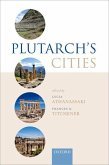The pope wanted it, Montesquieu used it, and the Nazis pilfered an Italian noble's villa to get it: the Germania, by the Roman historian Tacitus, took on a life of its own as both an object and an ideology. When Tacitus wrote a not-very-flattering little book about the ancient Germans in 98 CE, at the height of the Roman Empire, he could not have foreseen that the Nazis would extol it as "a bible," nor that Heinrich Himmler, the engineer of the Holocaust, would vow to resurrect Germany on its grounds. But the Germania inspired-and polarized-readers long before the rise of the Third Reich. In this elegant and captivating history, Christopher B. Krebs, a professor of classics at Harvard University, traces the wide-ranging influence of the Germania over a five-hundred-year span, showing us how an ancient text rose to take its place among the most dangerous books in the world.








